The posh man’s burden
The ‘caring classes’ have a dangerous saviour complex.

Want to read spiked ad-free? Become a spiked supporter.
There’s nothing the liberal-left loves more than crying ‘racism’, one of today’s most heinous transgressions. Naming and shaming the perpetrators of this particular sin is especially popular if they happen to be white and male.
The latest victim of this is Bob Geldof. Last week, the Guardian published a review of Just For One Day, a West End musical that tells the story of Live Aid. The author felt obliged to mention that Live Aid encapsulated ‘the apex of the white saviour complex’. Apparently, it ‘sealed a patronising image of Africa as a continent desperate for, and dependent on, Western aid’.
Geldof, who coordinated Live Aid in 1985, is not one to mince his words. He replied in a typically forthright manner. ‘It’s the greatest load of bollocks ever’, he said. ‘Are the only people allowed to react to an African famine black?’
It may indeed be ‘bollocks’, but the phrase ‘white saviour complex’ is now an all-too-common one. As is the fear of being charged with it. Ever since the phrase entered the lexicon, it’s something that has haunted charities like Comic Relief, which in 2020 consequently dropped trips to Africa for celebrities like Ed Sheeran and Stacey Dooley.
Nonetheless, there is something deeply anti-human and inhumane about accusing people of having a ‘white saviour complex’. One can only infer that those making the accusation would rather have seen people starve to death than face embarrassing charges of being racist and patronising. This is just how callous and selfish today’s race-obsessed thinking is.
Of course, there was much that was dubious about Live Aid. It was a spectacle of pop stars flaunting their conspicuous compassion, and of members of the public taking a similar opportunity to participate in a tasteless, global knees-up. Then there is the problem of charity itself, and especially perpetual charity, which can have a debilitating and humiliating long-term effect on its recipients. Yet if charity can belittle and demean, and if it is objectionable to publicly pronounce how deeply caring you are, then surely the race of the perpetrator doesn’t actually matter?
The irony is that the liberal-left today, as embodied in the Guardian and the Labour Party, is in thrall to its own saviour complex. Let’s call it an ‘upper-middle-class saviour complex’ or ‘posh saviour complex’. Back in the 1980s, Labour stopped being the voice of the working class and instead started to speak on behalf of the lower orders. Since then, the gentrified left has seen it as its mission to look after, cosset and rescue the great unwashed. In the eyes of the left, the masses are incapable of looking after themselves, of raising themselves by their own graft.
As Neil Davenport wrote on spiked earlier this week, at worst, modern middle-class leftists are hostile to the working class. They love to upbraid those with unfashionable, traditional values and to try to correct their thinking. At best, they perceive the lower orders as did the well-meaning Liberals of the 19th century – through lordly condescension.
Modern leftists patronise the poor, keeping them in a state of vassalage, beggary and penury. They regard state benefits as a long-term right rather than a necessary evil or temporary safeguard. In this sense, today’s conspicuously compassionate are surely little different or little better than those white, male rock stars of yore declaring their devotion to saving Africa.
The liberal-left today doesn’t recognise this irony. For all its bellyaching about race and gender, the dominant woke dogma has a glaring blindspot regarding class – something that was traditionally at the core of left-wing thinking. Today, we are led to believe that all white males are the custodians of privilege, irrespective of the fact that many white males are actually at the bottom of the socioeconomic ladder. And just as the whites at the bottom go unrecognised, the whites at the top fail to recognise their own privilege and their own saviour complex.
How the Irish became white
Before he became a popstar and then charity fundraiser, Bob Geldof helped to build the M25 motorway. He was one of many Irishmen who, from the mid-19th century onwards, came to Britain to work as a navvy or a builder. It was their part in helping to construct Britain’s railway infrastructure that these Irish immigrants are best known for. The Irish navvies were there from the start, with the initiation of the railway network in the 1830s. And they were still there with the construction of the London Underground’s Victoria Line in the 1960s. According to Jeremy Black, emeritus professor of history at Exeter University, ‘They were the key group, the marginalised group who were important to the development of the train system’.
So it came as a surprise that with the renaming of the London Overground system last week, there was no overt recognition given to the Irish. Other lines nod to the role played by minority Londoners in making the capital what it is today – such as the Windrush line (honouring the Afro-Caribbean community) and the Mildmay line (gesturing to LGBT history). But no mention of the Irish navvies.
Thirty years ago, the Irish probably wouldn’t have been overlooked in this way. Indeed, in the 1990s, it was fashionable in academia and everyday discourse to place the Irish, especially in Britain, in the same category as ethnic minorities. This was on account of them having suffered centuries of oppression, discrimination and ‘anti-Irish racism’ (you wouldn’t hear that phrase today). In the 1991 film, The Commitments, we even hear the audacious (and today unthinkable) claim that the Irish are the ‘blacks of Europe’.
But today, the Irish have been rendered ‘white’ – because everything’s about skin pigmentation these days – and are therefore presumed to be privileged. This is why the Irish navvies are now deemed unworthy of recognition.
The age of the slogan
The other night, a panellist on the late-night GB News show, Headliners, remarked that we live in an age of ‘truth by slogan’. This struck me as a sagacious observation and apposite phrase. Slogans do seem to proliferate today. The refrains ‘Black Lives Matter’, ‘Just Stop Oil’ and ‘From the river to the sea’ spring to mind.
And these are just the ones that represent statements of desire. There are also those that reflect a more superstitious yearning. Think of ‘transwomen are women’ or ‘diversity is our strength’. People utter these slogans constantly, like a magical incantation. As if repeating them enough might make them one day come true.
Patrick West is a spiked columnist. His latest book, Get Over Yourself: Nietzsche For Our Times, is published by Societas.
Picture by: Getty.
Who funds spiked? You do
We are funded by you. And in this era of cancel culture and advertiser boycotts, we rely on your donations more than ever. Seventy per cent of our revenue comes from our readers’ donations – the vast majority giving just £5 per month. If you make a regular donation – of £5 a month or £50 a year – you can become a and enjoy:
–Ad-free reading
–Exclusive events
–Access to our comments section
It’s the best way to keep spiked going – and growing. Thank you!





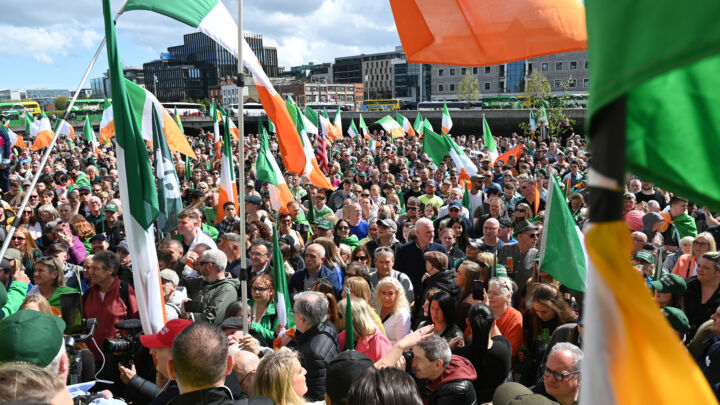
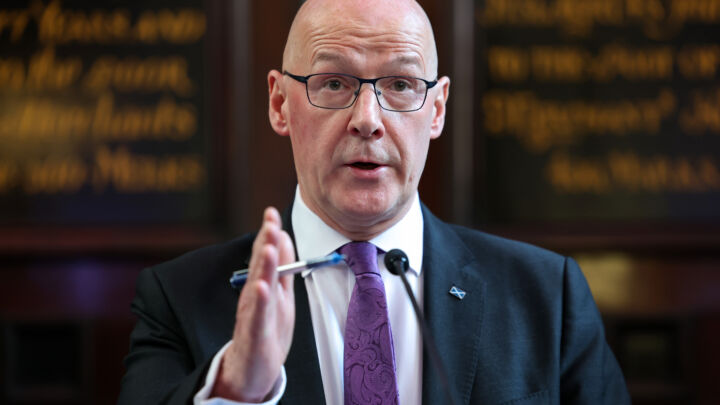
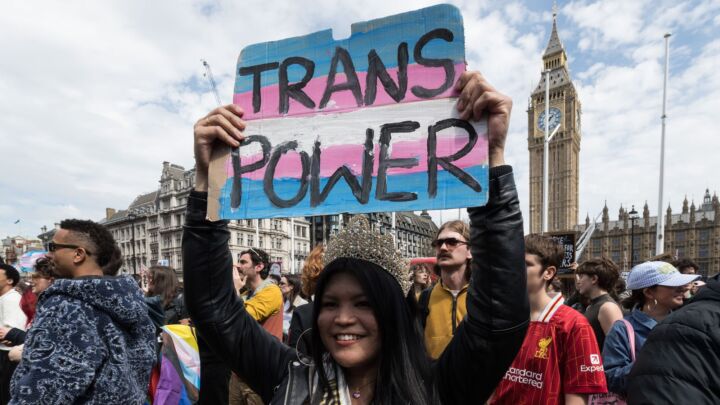
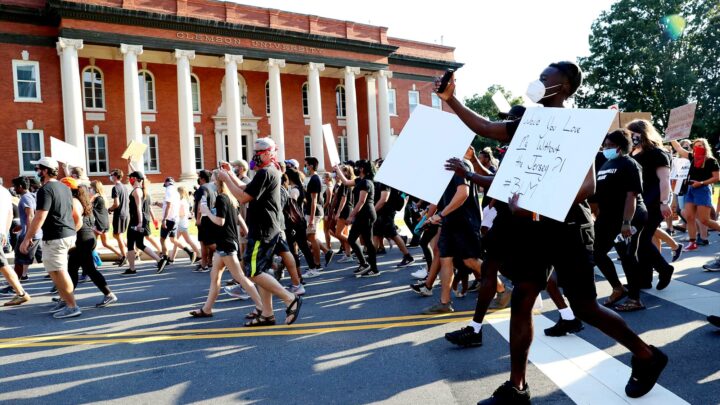
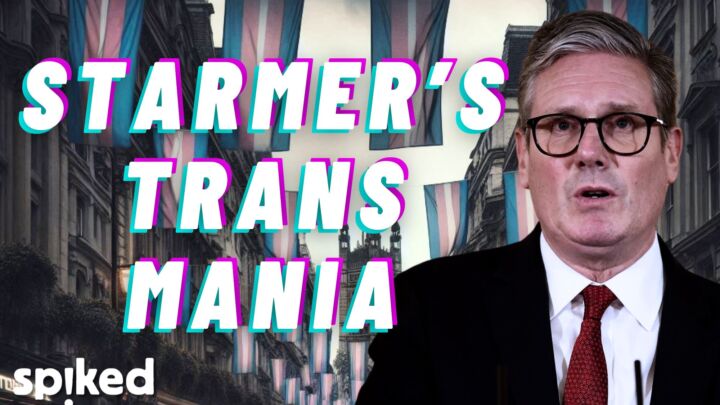
Comments
Want to join the conversation?
Only spiked supporters and patrons, who donate regularly to us, can comment on our articles.